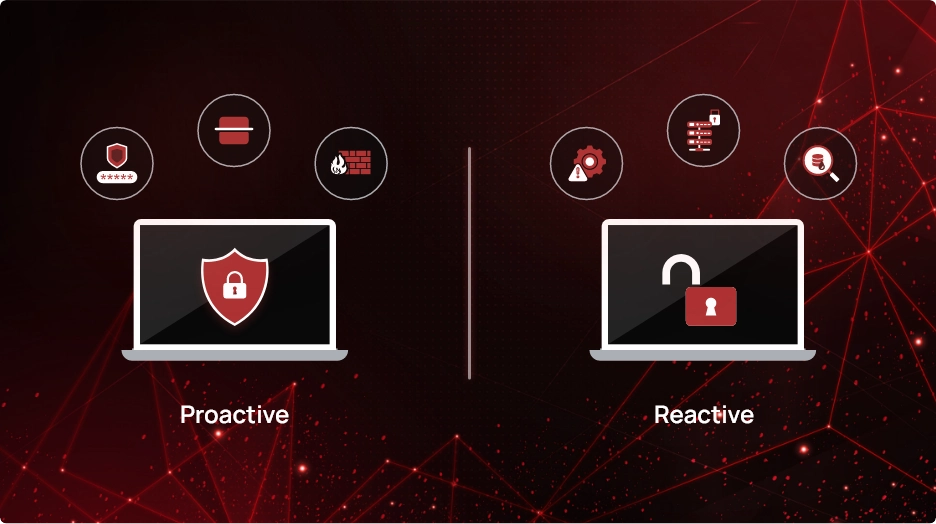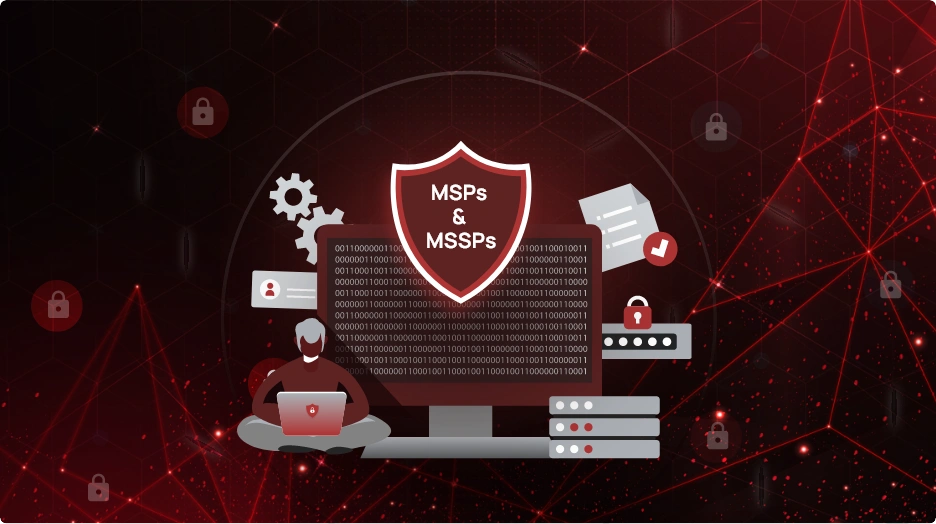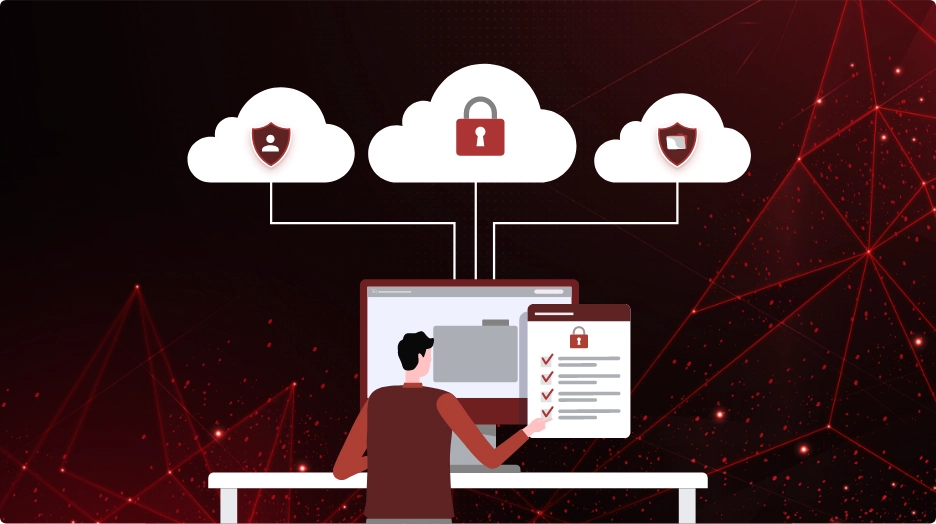Proactive vs reactive incident response for MSPs and MSSPs

Incident Response (IR) refers to the structured process of identifying, containing, and mitigating cybersecurity threats and breaches within an organization’s network. For Managed Service Providers (MSPs) and Managed Security Service Providers (MSSPs), IR is a vital component of safeguarding their clients’ systems and data.
Proactive incident response involves anticipating and addressing potential threats before they manifest into breaches. By actively monitoring for vulnerabilities and implementing preemptive security measures, MSPs and MSSPs can significantly reduce the risk of cyberattacks and their associated damages.
Understanding proactive vs reactive incident response
Proactive incident response involves taking preemptive measures to identify and mitigate potential cybersecurity threats before they escalate into significant breaches. It focuses on implementing robust security protocols, conducting regular risk assessments, and employing advanced threat detection technologies to stay ahead of malicious actors.
Reactive incident response, on the other hand, involves responding to cybersecurity incidents after they have already occurred. It primarily focuses on containing the damage, investigating the root cause of the incident, and implementing remediation measures to prevent similar incidents in the future.
For MSPs and MSSPs, distinguishing between proactive and reactive incident response is crucial for effectively managing cybersecurity risks and safeguarding their clients’ environments. Proactive IR allows MSPs and MSSPs to stay proactive in identifying and addressing potential threats, thereby reducing the likelihood of costly security incidents. By implementing proactive measures such as continuous monitoring, vulnerability assessments, and security audits, MSPs and MSSPs can enhance their clients’ security posture and prevent potential breaches.
On the other hand, understanding reactive IR enables MSPs and MSSPs to efficiently respond to security incidents when they occur. By having robust incident response plans and protocols in place, MSPs and MSSPs can minimize the impact of security breaches, mitigate damages, and swiftly restore normal operations for their clients. Overall, a balanced approach that integrates both proactive and reactive IR strategies enables MSPs and MSSPs to provide comprehensive cybersecurity services and effectively protect their clients’ assets.
The risks of a reactive approach to incident response
While the concept of a reactive approach to cybersecurity might seem cost-effective initially, the reality is far from it. By passively waiting for threats to materialize, businesses unwittingly expose themselves to a cascade of detrimental consequences:
- Increased downtime and data loss: Imagine the domino effect triggered by a security breach causing extended system outages. Lost productivity, stalled revenue, and frustrated customers are just the immediate repercussions. Recovering from such downtime can take weeks, significantly impacting your bottom line and eroding customer trust.
- Severe consequences: Cyberattacks often target sensitive information, and a reactive stance allows risk factors a crucial head start. Precious time is lost before detecting the security incident, which holds the potential to substantially increase the severity of consequences. This may translate to potential legal issues, compliance fines, and the constant threat of further attacks leveraging the stolen data.
- Reputational damage: In the age of instant news, a cyberattack’s impact extends far beyond the technical realm. A slow and reactive response can inflict irreparable damage on your brand image. Lost customer trust, reputational damage, and difficulties attracting new business become the collateral damage of delayed action. Rebuilding your brand takes time, resources, and a concerted effort – resources better spent on prevention.
- Remediation issues: The pressure of a live security incident fosters haste and compromises decision-making. Rushed investigations, incomplete analysis, and hastily implemented fixes are a recipe for disaster. This approach often results in higher long-term costs, as poorly addressed issues resurface or unintended consequences arise, requiring further remediation efforts.
Benefits of proactive IR for MSPs and MSSPs
Minimizing risk and exposure
Proactive incident response enables MSPs and MSSPs to identify and address potential security vulnerabilities before they can be exploited by cyber threats. By conducting regular risk assessments, implementing robust security measures, and staying updated on emerging threats, MSPs and MSSPs can effectively minimize the risk of security breaches and data exposure for their clients. This proactive approach helps organizations maintain compliance with regulatory requirements and safeguard sensitive information from unauthorized access.
Early threat detection and prevention
One of the key benefits of proactive incident response is the early detection and prevention of cyber threats. By leveraging advanced threat intelligence tools and proactively monitoring systems, MSPs and MSSPs can identify suspicious activities and potential security breaches in real-time. This early detection allows them to take immediate action to mitigate the threat, prevent data loss, and safeguard critical systems and assets from compromise. By staying vigilant and proactive in threat detection and prevention, MSPs and MSSPs can significantly enhance their clients’ cybersecurity posture and reduce the likelihood of costly security incidents.
Improved client satisfaction and trust
Proactive incident response demonstrates a commitment to proactive security and risk management, which can significantly enhance client satisfaction and trust. By taking proactive measures to protect their clients’ systems and data, MSPs and MSSPs can instill confidence in their ability to effectively manage cybersecurity risks and respond to emerging threats. This proactive approach helps build stronger client relationships and fosters a sense of security and trust between MSPs and MSSPs and their clients.
Reduced incident response costs
Implementing proactive incident response measures can help MSPs and MSSPs reduce incident response costs and minimize the financial impact of security breaches. By investing in proactive security solutions and implementing preventive controls, MSPs and MSSPs can significantly reduce the likelihood of costly security incidents and data breaches. This proactive approach helps organizations avoid the financial and reputational consequences associated with security breaches, such as regulatory fines, legal fees, and loss of customer trust.
CheckRed: The importance of investing in robust security solutions
Robust security solutions such as SaaS Security Posture Management and Cloud Security Posture Management play a crucial role in proactive incident response by providing real-time visibility, threat detection, and automated remediation capabilities.
CheckRed is a comprehensive security posture management platform designed to help MSPs and MSSPs effectively monitor, manage, and secure their clients’ digital environments. It offers features such as continuous security monitoring, automated threat detection, compliance management, and remediation workflows.
CheckRed enables proactive incident response by providing MSPs and MSSPs with real-time visibility into their clients’ security posture, allowing them to identify and address potential threats before they impact business operations. Its advanced analytics and automation capabilities streamline incident detection, investigation, and response processes, helping organizations mitigate risks and prevent security breaches.


